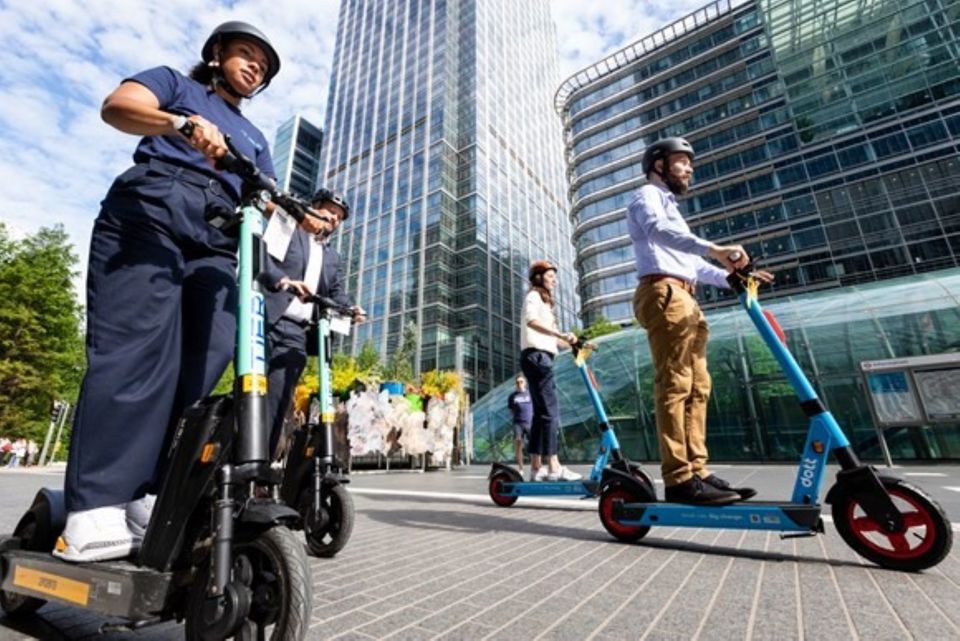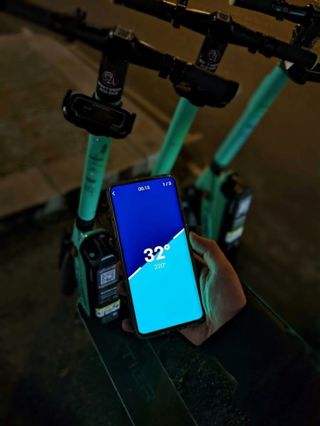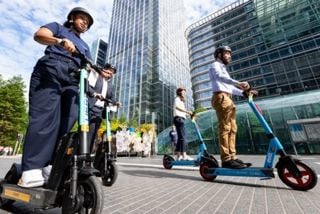A letter has been sent to the Prime Minister urgently calling on the Government to legalise e-scooters.
Signed by more than 50 organisations, including environmental charities and campaigners, local authorities, disabled people's organisations, micromobility operators and retailers, they are warning that the UK is at risk of falling behind the rest of Europe.
Rental e-scooters are currently only available through Government trials in around 23 towns and cities around England – it is illegal to use private e-scooters on public roads.
The UK is the only developed nation without either permanently legal e-scooters or committed plans to legalise.
Now Collaborative Mobility UK (CoMoUK), which brings together public, private and third sector organisations to support shared transport, has sent a letter on behalf of more than 50 organisations to Rishi Sunak calling on him to press ahead with legislation to create a new powered light vehicle class that would make e-scooters legal.
Signatories include the Campaign for Better Transport, Clean Cities Campaign, London Cycling Campaign, Major Trauma Group, Northamptonshire Police, Pure Electric, Southampton Sight, Sustrans, Thomas Pocklington Trust, Transport Action Network, Urban Transport Group and Women in Transport.
Local authorities include Essex County Council, Milton Keynes City Council, North Northamptonshire Council, Somerset Council, West Northamptonshire Council and West Yorkshire Combined Authority.
It is also signed by micromobility operators Voi, Beryl, Dott, Ginger, Lime, Superpedestrian, Tier and Zwings.
The letter said: “Currently e-scooter trials are due to end after May 2024. These trials are ingrained into local transport systems enabling thousands of people to get to work, higher education and to run errands.
“Yet there is no certainty of these trials beyond spring next year nor the ability of additional towns or cities to introduce these services.
“This lack of certainty combined with the fact an estimated 750,000 privately owned and unregulated e-scooters are on UK roads underscores the importance of e-scooter legislation being included in this year’s King’s Speech.
“Another extension to shared e-scooters does not address private e-scooters. These private vehicles are unlikely to undergo regular maintenance by trained professionals or have government-mandated safety features.
“Private e-scooters can cause concern for road users particularly disabled people in addition to potentially being unsafe for riders, however, this is where legislation and regulation can make a positive difference.”
It added: “The Clean Cities Campaign has recently found that UK cities are lagging well behind other European cities in the rollout of shared and zero-emissions transport including e-scooters.
“Major shared transport operators stand ready to continue investing and improving transport across UK towns and cities, however, they require long-term certainty that would only come with legislation.”
An independent poll found recently that more than 80% of the general public are supportive of new regulatory measures for e-scooters - and over 70% want them introduced before the next General Election, which is most likely to be held next year.
Richard Dilks, chief executive of Collaborative Mobility UK (CoMoUK), said: “The evidence from the trials is that e-scooters are incredibly popular, with huge demand from users, and the UK has been left as an international outlier by not introducing permanent legality.
“To address the crisis levels of transport emissions in the UK and help people save money amid the cost-of-living crisis, the government can’t delay any further.”






















Login to comment
Comments
No comments have been made yet.